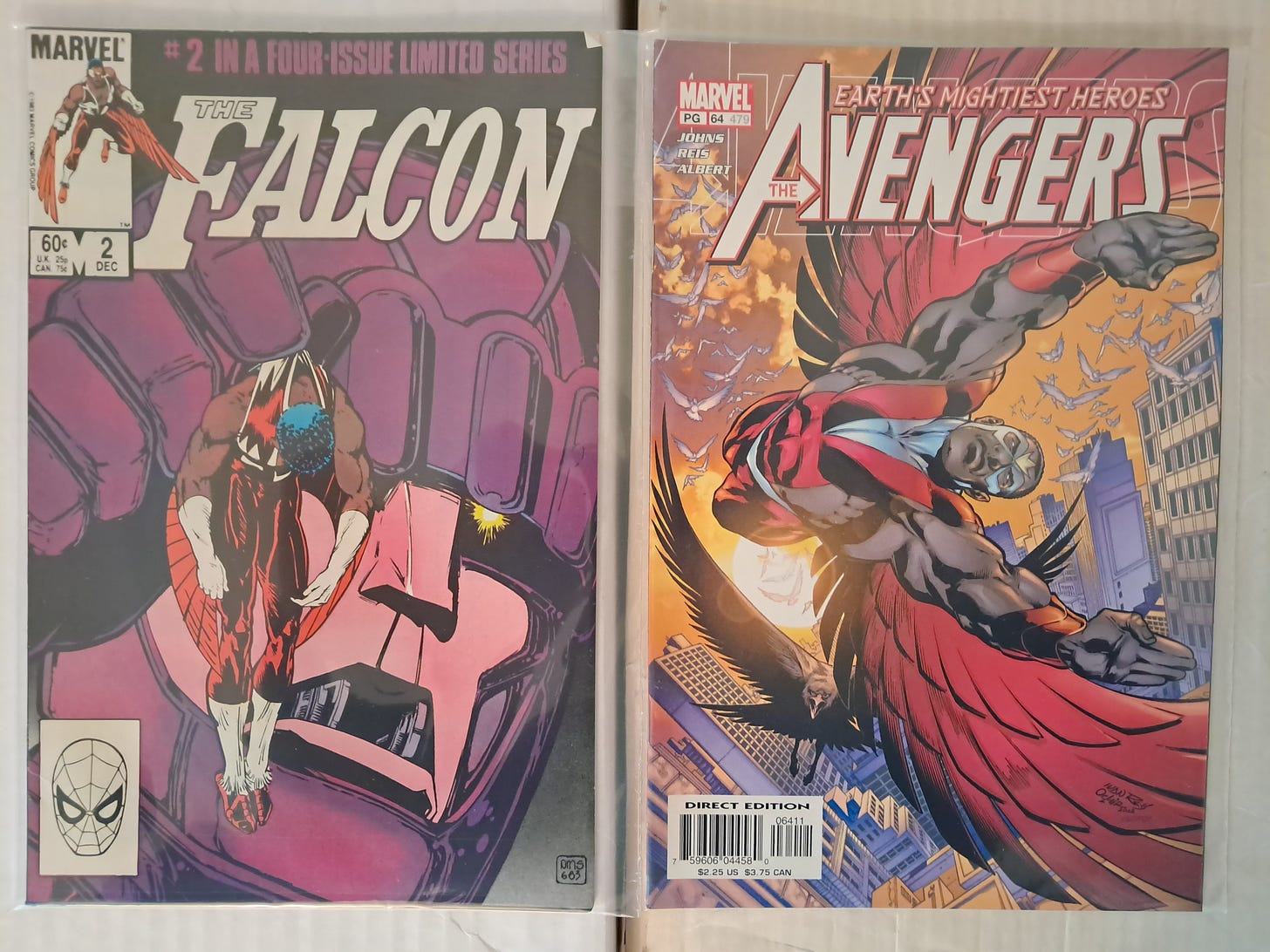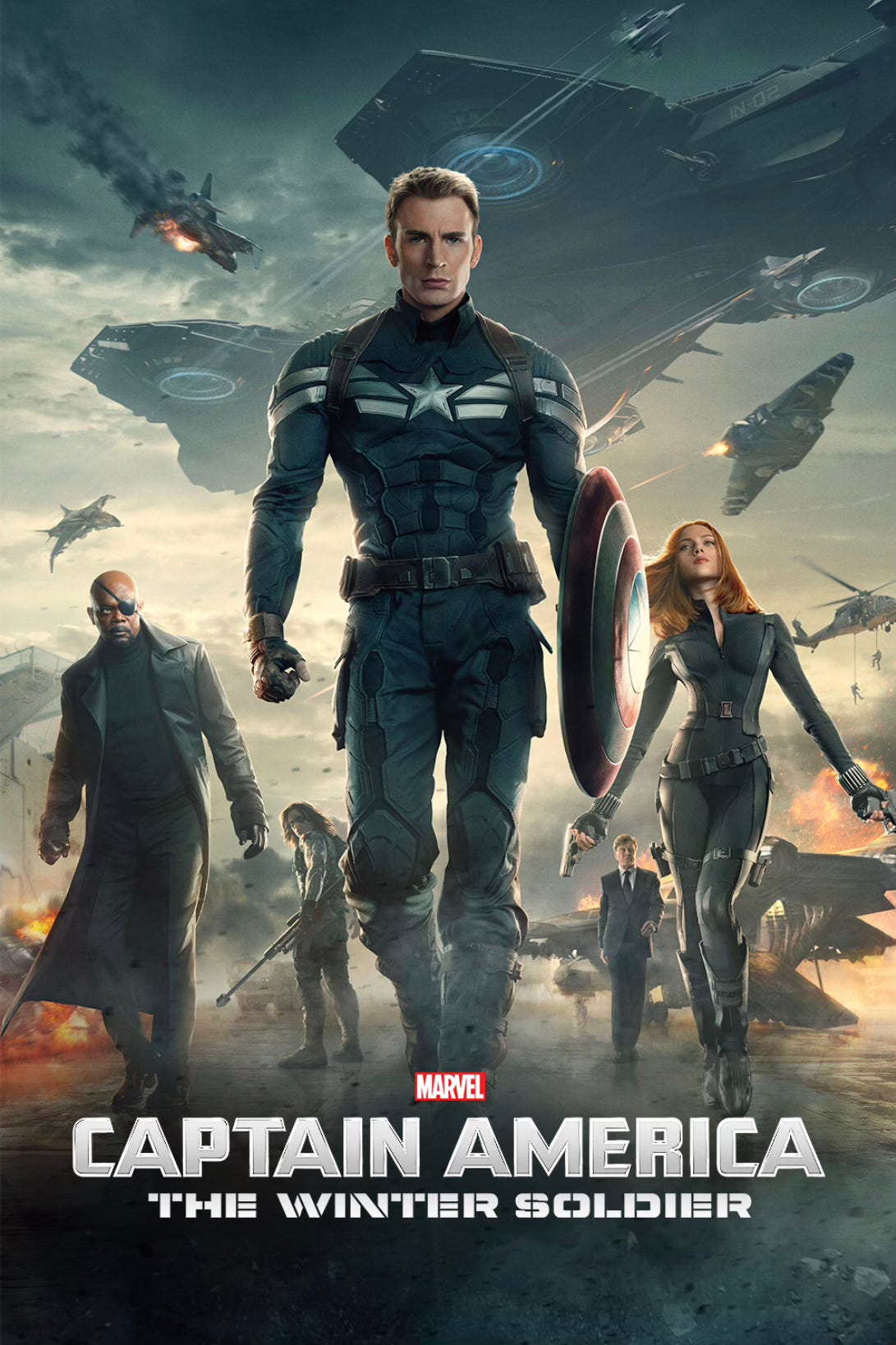Captain America: Brave New World is like a lesser version of Captain America: The Winter Soldier mixed with a belated Incredible Hulk sequel, but without Steve Rogers or Bruce Banner.
With the original Cap in retirement (and Chris Evans having moved on to new projects), we have a new Captain America this time around. Anthony Mackie picks up the shield as Sam Wilson, the former Falcon. If it can’t be Steve, then Sam tops a very short list of suitable successors, and Mackie has the stuff to pull it off.
I’m all for the Falcon getting his own movie, even if he requires more popular branding to do so. It still would be nice to see him get his own movie.
Brave New World runs into the same issues as other post-Endgame Marvel movies. It’s entertaining enough on the surface, and it plays with interesting ideas and stars a solid cast. But neither the ideas nor the characters get the breathing room they need. The shared universe is so sprawling now that it distorts each movie’s center of gravity.
Talent is not the problem. The problem is structure (as well as too many cooks in the kitchen). Movies simply don’t provide the right structure for an ongoing superhero series. Too much time passes between each movie, and then each movie doesn’t have enough time to develop all the various characters and plotlines, especially when they need to tie into other Marvel properties. The Disney+ shows help a bit, but they don’t entirely bridge the gap, as characters seldom get more than one short miniseries.
The main thing that works in Brave New World is Sam Wilson. Like Steve Rogers before him, Sam is a straight-up good guy trying to do his best in a difficult world. Being a veteran himself, he’s developed a great rapport with the military. He has enough sense to question whether he’s worthy of carrying the shield, and he’s well-positioned to become the new moral center of the MCU. All a great start.
(SPOILERS ahead. I won't spoil everything, but I will spoil some revelations. Read at your own risk.)
Instead of zeroing in on Sam, the movie juggles threads, characters, materials, and plot points drawn from previous Marvel movies and shows:
An old forgotten Captain America, who was introduced in The Falcon and the Winter Soldier on Disney+
An inert Celestial sticking out of the ocean, which was introduced in The Eternals
A few characters and loose ends from The Incredible Hulk
Another former Black Widow operative
A Bucky Barnes cameo
Talk of restarting the Avengers
Vibranium from Black Panther and various other movies
Adamantium to help set up the X-Men
Not a whole lot of room left for a Sam Wilson story, except for in that first bullet. That’s the one we need here—the Captain America that history forgot, Isaiah Bradley (played by Carl Lumbly, whose voice you may recognize from the excellent Justice League cartoon).
Terrorists brainwash Isaiah and activate him as a killing machine. Though he has no awareness of what he did, he’s sent to prison. This would be horrific enough for anyone, but Isaiah’s past compounds his pain. As established in The Falcon and the Winter Soldier, the government had already wrongfully imprisoned him and experimented on him for decades, and now it looks like hell is repeating itself. Sam wants to help his friend and set things right.
That’s a decent setup, though the execution isn’t as strong as the similar storyline from Captain America: The Winter Soldier, in which the original Cap tries to help his friend who had been captured, experimented on, and brainwashed into a killing machine.
Captain America: The First Avenger introduced the close friendship between Steve and Bucky during the World War II era, and it showed us the apparent death of Bucky. In The Winter Soldier, Cap had recently been thrust into the modern world—a very different, morally ambiguous, less trustworthy world.
And in this darker, murkier era, Cap discovers his old best friend is alive after all, but he’s been corrupted into a ruthless killing machine. Bucky symbolizes the changing times, but as much as he’s changed—and as much as the world has changed—Cap insists on helping his old best friend, his country, and the world, because that’s the kind of guy he is.
Sam’s friendship with Isaiah isn’t as well developed as Steve and Bucky’s. Worse, the plot separates Isaiah from most of the action, as the movie prioritizes following up on characters from the second-ever MCU film, 2008’s The Incredible Hulk.
General Thaddeus “Thunderbolt” Ross had been a recurring character in the MCU over the years, always played by William Hurt, who sadly died in 2022 at the age of 71. Harrison Ford takes over as Ross, who is now president of the United States. He’s the movie’s most interesting character—a man who’s made a lot of questionable choices throughout his career, but always with the belief that he was serving his country. Now, some of those choices are coming back to haunt him.
Even though Ross has traditionally been a Hulk character, there’s a strong case for using him as a foil to Captain America. He can represent the dark side of patriotism.
But the movie fails to free him from the Hulk’s orbit, even if the Hulk himself isn’t in the movie. (Again, SPOILERS!)
The main villain is a Hulk villain—the Leader, though the movie just uses his regular name, Samuel Sterns. (More evidence of sprawl: The hero’s name is Sam, and the villain’s name is Samuel.)
Tim Blake Nelson first played Sterns as an eccentric scientist in The Incredible Hulk. Toward the end of that movie, some of Bruce Banner’s blood infected him, warping his skull. We hadn’t seen him since. The Incredible Hulk teased us with some future Leader action, and by golly, the MCU delivered—seventeen years later, in a Captain America movie, starring the Falcon.
Liv Tyler also reprises her role from The Incredible Hulk, albeit for a quick cameo. She returns as Betty Ross—daughter of Thaddeus Ross, ex-girlfriend of Bruce Banner, and total stranger to Sam Wilson. The role consists of one phone call and not even a minute of screen time, but Betty does serve as a major source of motivation for her father. President Ross’s storyline would have benefitted from giving Betty more of a physical presence, but she also couldn’t have more of a physical presence because she has nothing to do with Sam.
Though we don’t get the Hulk, we get a Hulk, one of a different color, as Ross transforms into the Red Hulk. The man who had tried to control so much loses control of himself. And it’s up to the new Captain America to stop his rampage.
This could have been a great battle. Ever since the 1960s, Marvel Comics has excelled at casting the superhero as the underdog. For example, Daredevil #7 pitted its low-powered hero against the far mightier Namor the Sub-Mariner. Daredevil indeed could not defeat this powerful man, but he achieved a victory nevertheless. He went the distance, years before Rocky. He held his ground, saved lives, and earned Namor’s respect.
Another example: Fantastic Four #25. The Hulk was rampaging through New York, and only Ben Grimm was strong enough to hold him off. But not even the Thing was in the Hulk’s weight class. Ben had to combine brains and brawn to contain Hulk’s rampage until the Avengers could arrive. He lost the fight but succeeded in the bigger goal. Like Daredevil, he went the distance and prevented the situation from becoming far worse.
Those sorts of fights should have provided the model for Captain America vs. the Red Hulk. The Red Hulk should have pushed Sam to his absolute limit, demonstrating the hero’s ability to persevere against such an unbeatable foe and showing us what kind of man our new Captain America is—allowing Sam to prove to himself that he’s worthy of carrying the shield.
It starts out fine, but Sam’s Falcon suit gives him too much protection. He has vibranium wings now, which can withstand punches from a Hulk. Sam takes a beating, yes, but it’s nowhere near the brutal ordeal it should have been. And the resolution feels anticlimactic.
The movie has even more characters. Since Falcon is now Captain America, there’s a new Falcon in training, Joaquin Torres (Danny Ramirez), who brings plenty of enthusiasm, sort of like Kamala Kahn in The Marvels but with less development. Filling the Black Widow role is Ruth Bat-Seraph (Shira Haas), who also needed more development. Giancarlo Esposito does what he does best—plays a bad guy—but Sidewinder is no Gus Fring.
There just wasn’t enough screen time to go around.
At this point, the Marvel Cinematic Universe just needs to be a big-budget TV show called Marvel—eight hourlong episodes a year, structured like the early seasons of Game of Thrones. The earlier MCU films balanced the distinct visions of the writers and directors with the needs of the shared universe. But now it’s all shared universe, to the detriment of the great characters and interesting ideas within.







Finally got around to seeing it myself and I agree. They could've stopped the film after the naval fight and broken it into two longer films and that even have been fine. Instead the Red Hulk think felt anticlimactic because we all knew he was going to go that way from the trailer.
Still fun, though.
"Like Steve Rogers before him, Sam is a straight-up good guy trying to do his best in a difficult world." - that really summed up why I like Steve and Sam in the MCU so much! 😄
But, wow - I did not expect all those plotlines in one movie!
Also, a little sad to hear that the big Cap VS Red Hulk fight was a bit anticlimactic... ☹
Well, on the bright side, I think you've sufficiently lowered my expectations now, so that I can enjoy the movie when it comes to Disney+. So thanks for that! 😄😆